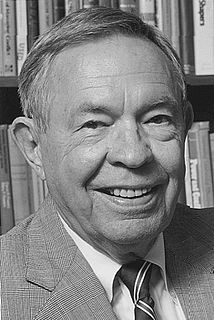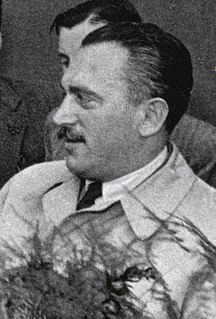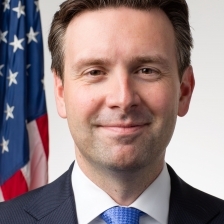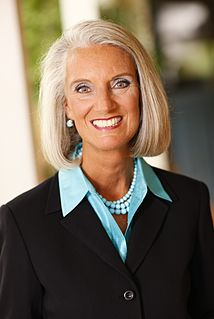A Quote by Marshall B. Rosenberg
If people just asked: "Here are the needs of both sides, here are the resources. What can be done to meet these needs?" the conflict would be easy to resolve.
Related Quotes
When you have a conflict, that means that there are truths that have to be addressed on each side of the conflict. And when you have a conflict, then it's an educational process to try to resolve the conflict. And to resolve that, you have to get people on both sides of the conflict involved so that they can dialogue.
Most parents hate to experience conflict, are deeply troubled when it occurs, and are quite confused about how to handle it constructively. Actually, it would be a rare relationship if over a period of time one person's needs did not conflict with the other's. When any two people (or groups) coexist, conflict is bound to occur just because people are different, think differently, have different needs and wants that sometimes do not match.
The most constructive solutions are those which take into consideration the views of all persons involved and are acceptable to all. Such outcomes are the result of negotiation strategies where the needs of both sides are considered important and an attempt is made to meet all needs. These solutions are appropriately called Win-Win because there are no losers. While often difficult to arrive at, the process leading to such solutions builds interpersonal relationships, increases motivation and improves commitment. Win-Win solutions are the most desirable outcomes of conflict resolution.
Jesus has given me ample resources to meet the spiritual needs of others because He has given me Himself and He has give me His Word. But in order to meet the spiritual needs of the multitude, I have to spend hours alone with Him in the prayerful meditation of His Word so that my spiritual needs are met.
When I save, I lay something aside for future need. If I sense God's leading, I will give it away to meet greater needs. When I hoard, I'm unwilling to part with what I've saved to meet others' needs, because my possible future needs outweigh their actual present needs. I fail to love my neighbor as myself.
The way to solve the conflict between human values and technology needs is not to run away from technology. That's impossible. The way to resolve the conflict is to break down the barriers of dualistic thought that prevent a real understanding of what technology is--not an exploitation of nature, but a fusion of nature and the human spirit into a new kind of creation that transcends both.
It's easy enough to predict that there will be conflict, but you place yourself in a maelstrom when you offer a view about the conflict, and I don't have an investment in one side or the other; I feel compassion for both sides. I've spent a fair amount of time in Gaza and Israel, done a lot of reporting and lived over there, and the tragedy is sometimes overwhelming. At the same time, America does have an investment in what happens.
The system of technological production that we have today has been justified in terms of creating more goods to feed more people and to meet more needs. But it actually destroys more of the resources that we need in order to meet those multiple needs. If we shift to an ecological perception, a diversity perception, we realize that some of the instruments of which we are very proud are actually extremely primitive for dealing with nature. To me that is the great lesson of ecological awareness at the turn of the millennium.





































